Awards for Educating, Inspiring and Enthusing 2024
Professor Piers Forster, an outstanding climate scientist whose work is not only at the forefront of scientific research but also plays a critical role in informing and shaping climate policy on both national and international levels.
Professor Forster is the Director of the Priestley Centre for Climate Futures at the University of Leeds, a world-leading institution dedicated to addressing climate challenges through research and collaboration. In 2023, alongside Dr. Chris Smith, Piers received the prestigious NERC Impact Award for their groundbreaking work on 'Informing international net zero emission targets and national legislation through physical climate model emulators.' Their research transformed our understanding of the relationship between global temperatures and emissions, directly influencing international policies like the Paris Agreement and contributing to the establishment of legally binding net-zero targets. This recognition highlights Piers’ ability to bridge the gap between scientific research and real-world impact, shaping climate action at the highest levels.
Professor Forster’s influence extends well beyond academia. He has contributed significantly to the Intergovernmental Panel on Climate Change (IPCC), playing a key role in the Sixth Assessment Report (2021). As interim Chair of the Climate Change Committee (CCC), a position he has held since 2023, and a member since 2019, he has provided expert guidance on climate policies that continue to shape the UK’s approach to climate change. He is a regular participant at COP meetings, where his expertise and ability to communicate complex climate science to a broad audience are widely recognized.
A prolific communicator, Professor Forster’s media presence amplifies his work, ensuring that critical climate science reaches a global audience. As well as appearing in interviews, his contributions to outlets such as The Conversation, BBC Future, and Carbon Brief have brought the realities of climate science to the public in accessible and engaging ways. With over 51,000 citations since 2019, he has consistently been recognized as a Web of Science Clarivate Analytics highly cited researcher.
Professor Forster’s dedication to both global and local climate initiatives is also exemplary. He is a Trustee of the United Bank of Carbon, a woodland restoration charity, and is actively involved in regional climate strategies as Patron of Zero Carbon Harrogate and a member of the Transport for North Partnership Board. In July 2024, he was keynote speaker at a Zero Carbon Harrogate event: "Meeting the UK Government's Carbon Budgets - What Does This Mean for Yorkshire?". His commitment to tackling climate change on all levels—from policy-making to grassroots initiatives—demonstrates his comprehensive approach to addressing this pressing global challenge.
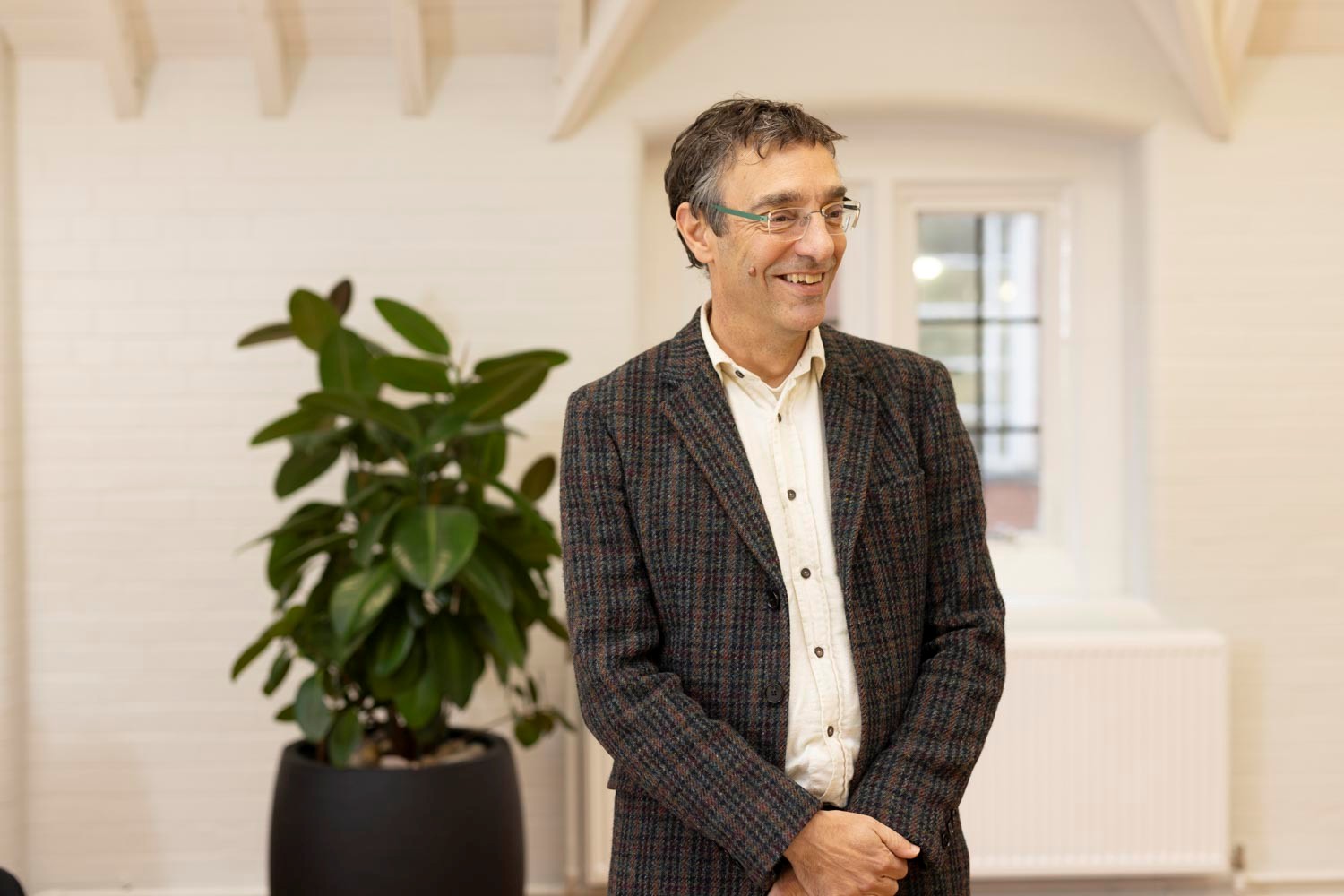
Acceptance Message
Thank you to the Royal Meteorological Society and to whomever nominated me for the Climate Science and Climate Science Communication Award. It means an awful lot to me, as I am both passionate about the science and passionate about sharing it.
I’ve had the honour of working alongside some brilliant scientists that can communicate complex ideas concisely and clearly. Also, I have really valued the feedback and guidance from many communication professionals, artists and social scientists along the way that help contextualise and land the work we do.
Climate science communicated well can drive action. You don’t necessarily have to be the most fluent or talk the loudest. With empathy for your audience, you can both connect the dots to make new scientific discoveries and convince societies around the world to act.
Thank you, this is a huge honour.
John Powell’s interest in Meteorology and Climatology began when he was 10 years old. John served in the RAF as an airman in the 1950s. In 1961 he began keeping meticulous weather observations at his home at Penmaen on the Gower Peninsular and he made an approach to the Met Office to see if his observations, provided on a monthly basis, would be acceptable. Following an inspection, his station joined the observations network. He was so devoted to taking weather observations that he worked nightshifts in the GPO telephone exchange in Swansea, therefore, he was onsite to carry out the 0900 / 1000hrs observations. This passion for recording the weather did not stop there. He was one of the founding members of the Welsh Meteorological Society, which later became the Welsh Centre of the Royal Meteorological Society.
His interest in meteorological matters resulted in John producing regular articles for the South Wales Evening Post on weather topics / events. He became a regular speaker on weather matters to schools and groups within West Wales area, bringing weather recording equipment such as a hand-held anemometer, early sunshine recorder and rain gauges to his talks. The arrival of local Commercial Radio Stations in the UK resulted in the “birth” of a station called “Swansea Sound”, which operated across Swansea / West Wales from 1974 until 1998. John’s talks to the public directly resulted in him being invited to be that radio’s weather expert, broadcasting twice a day. The heavy snow in February 1978 resulted in John regularly updating weather conditions because roads were impassable in the Gower peninsular. He became well known as the “Swansea Weatherman”. Later he was involved, with others, in taking pollen counts using a Hirst Spore Trap which were collated nationally and used to help hay fever sufferers in the area to take necessary precautions. These pollen readings resulted in a number of scientific papers which appeared in the 1970s, such as “Grass Pollen content in the air in the Bristol Channel region” produced by Dr J Mullins of the Asthma Research Unit at Sully Hospital, Penarth, Cardiff, D W Warnock and R Harvey (Volume 7 Clinical Allergy 1977).
During the time he ran his weather station at Penmaen (1961 – 2009), John produced articles and information about his weather observations in other publications, such as the Climatological Observers Link (COL), the Journal of Meteorology as well as an article in the Weather Magazine in 2006 - “The Climate of Gower” 40 years perspective, which was co-authored by John and Julian Mayes.
In recognition of his 49 years of recording weather information for the Met Office, John was awarded the MBE. John is now aged 91 but despite being unable to take weather readings, he remains interested in weather and climate issues. BBC Wales Weather meteorologist, Derek Brockway, has commented that John’s contribution to the Met Office and weather / climate issues over the years has been outstanding.
John’s enthusiasm in meteorology / climatology has undoubtedly helped many of those living in the Swansea and West Wales to better understand weather related matters. His achievements fully meet the criteria set out to be the recipient of the RMetS Michael Hunt Award for 2024.
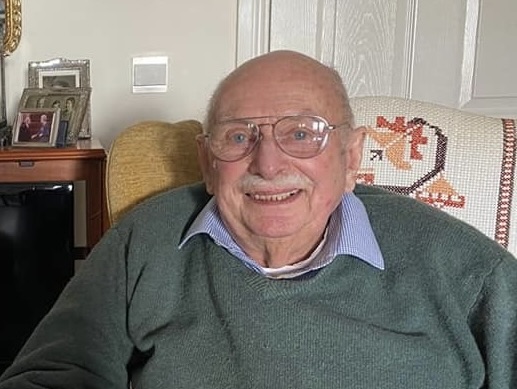
Emily Wallace and her team (Oli Claydon, Dr Jenny Pirret, Alice Dring, Ali Richardson, Helen Roberts FRMetS, Professor Paul Davies CMet) have played a pivotal role in developing and coordinating the delivery of what have become known as ‘ultra rapid climate lines’. These are concise, scientifically robust, and timely lines of communication that can be used before, during and after extreme weather events in the UK. These climate lines maintain the high level of accuracy and reliability that is essential when engaging with the public on such complex and often fast moving topics. This rapid turnaround enables operational teams at the Met Office to respond confidently and effectively to media and stakeholder queries, providing additional context and clarity to supplement the Met Office’s standard weather communications.
By equipping teams at the Met Office with these climate lines, Emily and her team have significantly enhanced the breadth and depth of commentary the Met Office can offer in response to media coverage.
This ensures that the Met Office is not only reactive but also proactive in shaping the narrative around climate and weather, especially when public interest is at its peak. As a result, the risk of miscommunication is greatly reduced, and the likelihood of inaccurate reporting is diminished. Resulting media coverage using these lines also acts to increase climate literacy, by authoritatively communicating the link between severe weather and climate change.
Moreover, this capability helps reinforce the Met Office’s role as a trusted, authoritative voice on weather and climate science. Journalists and broadcasters now increasingly turn to the Met Office not just for forecasts, but for informed perspectives on climate change implications as well—something that has been strengthened by the clarity and speed of Emily’s contributions. Her work has helped the organisation maintain its reputation for scientific excellence while also meeting the growing public and media demand for timely information on the relationship between weather events and climate change.
In summary, Emily’s work has had a tangible, positive impact on the Met Office’s ability to deliver consistent, accurate messaging during critical times. Her leadership and innovation in providing rapid, credible climate commentary have helped to counter misinformation, enhance media engagement, and strengthen public trust in the Met Office as a leading source of expertise in both weather and climate science.
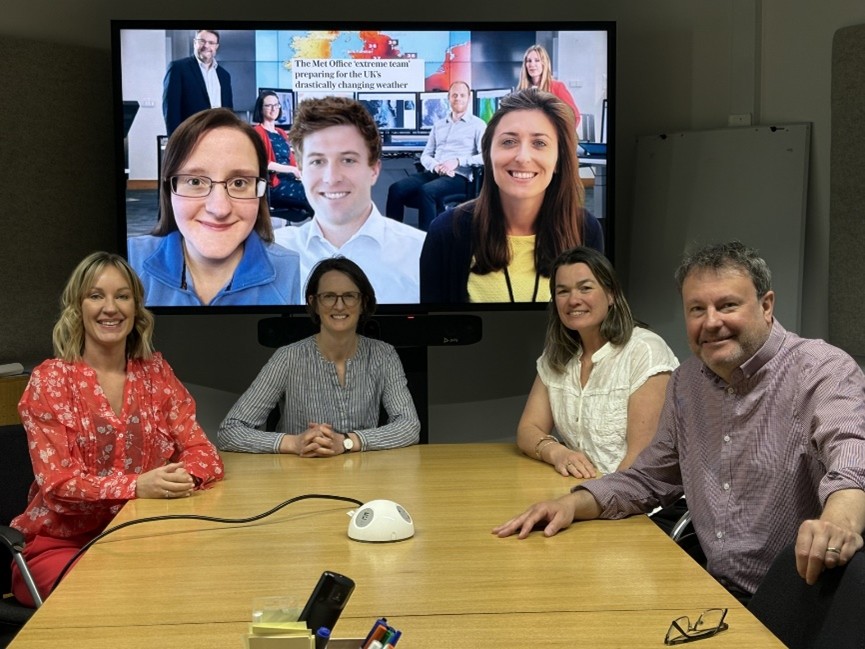
Acceptance Message
Dr Emily Wallace CMet
Oli Claydon
Dr Jenny Pirret
Alice Dring
Alison Richards
Helen Roberts FRMetS
Professor Paul Davies CMet
Tyrone Dunbar
We are honoured to accept the Michael Hunt Award for 2024. This award is particularly meaningful as it underscores the critical role of robust, clear and purposeful communications. The Met Office's purpose is to help us all make better decisions to stay safe and thrive. Without the skill of communications specialists and social scientists working alongside weather and climate experts, this purpose can be easily lost.
With climate change increasing the frequency and intensity of extreme weather, we’re increasingly seeing impacts from weather that we’ve never seen before. The Extremes Team who co-ordinated this work, and the 'Ultra-rapid climate lines' themselves were created to empower people to deal with extreme weather and remain safe and resilient. We're indebted to colleagues and partners who provided insights and research evidence that meant that we are able to provide robust, timely and relevant information before, during and after extreme weather.
Thank you once again for this honour. We look forward to continuing our mission of enhancing public understanding and appreciation of meteorology.
Ben Cuddon is the founder of Climate Ed – a young charity committed to providing carbon literacy education and action to primary school children.
Ben is a trained teacher who feels passionately that climate change is the defining issue for the upcoming generation, but is concerned about the lack of carbon literacy education for primary school children. In 2017 he left his job and started to work with a group of teachers to design a high-quality carbon literacy programme that would engage and inspire primary-aged children, help to avert climate anxiety and spur children and their families to action.
Since then, Ben has assembled a network of over 300 knowledgeable and passionate volunteers who he has trained to go into schools to deliver the five-module programme over a half term. The workshops combine drama, knowledge-sharing, conversation and games and engage children in an enabling and reassuring way. The programme helps children find a voice on climate change and take small but meaningful steps to reduce carbon emissions.
Ben’s programme of workshops has been well-received in his home city of London. In 2024, Climate Ed won the Lambeth Civic Award for Climate Justice and the Southwark Climate Champion Civic Award. Climate Ed were also finalists for the Third Sector Awards Volunteer Team of the Year 2024. Since 2024, Ben has built a team of coordinators in the South East, West Midlands and the North West who are replicating the success of the programme in schools locally. His vision is to ensure that all primary-aged children in the UK are able to access high quality carbon literacy education. Region by region, this is becoming a reality.
Ben’s approachable, thoughtful and dedicated approach has inspired great commitment from volunteers, trustees and colleagues. He continues to be hands-on with climate education, frequently delivering the programme in schools. Alongside his commitment to Climate Ed, he is also a trustee for Sustainable Merton and lives his values through his commitment to carbon reduction in his own life.
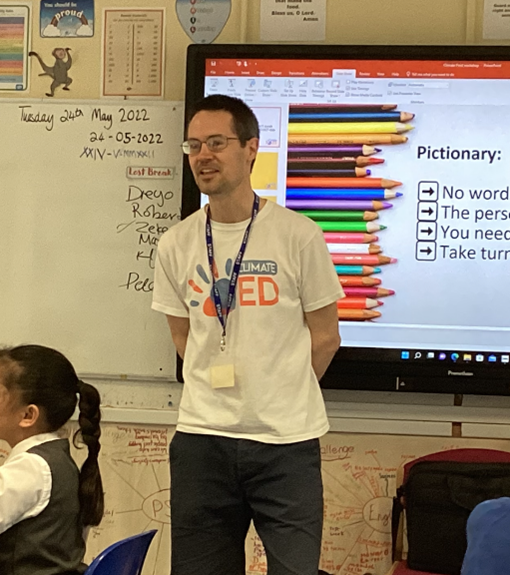
Acceptance Message
It's a great honour to receive this award and I'm hugely grateful to the Royal Meteorological Society for this generous recognition of all the work that Climate Ed has been doing.
We are a young and exciting charity with an incredible team of very hard-working and dedicated volunteers who put in a great amount of effort to engage children about climate change and teach them about this hugely important issue. It's an absolute privilege to work with them and see the impact that they make in schools all over the country every day.
Regan is a brilliant and committed communicator. They are knowledgeable, enthusiastic and passionate about science engagement in all its forms and ensuring that science is accessible and inclusive for all.
In their role as the RMetS' science engagement fellow for youth and early careers, Regan helped to develop new initiatives to better engage with, support and celebrate people of colour in the field. Now, as well as being the Co-Editor-in-Chief of the RMetS Journal 'Weather', and working on completing their PhD in the "stratospheric pathway" linking polar climate to midlatitude weather and climate extremes, Regan volunteers an enormous amount of their time supporting public engagement projects and events across the South West.
In particular Regan has been a long-term and committed volunteer for Exeter Science Centre where they have volunteered as an on-hand scientist, mediator, speaker, general support volunteer, and contributor to materials for a large number of science engagement events and projects, reaching thousands of people from a wide range of ages and backgrounds. With their colleagues at the University of Exeter, Regan has brought climate science to pubs, festivals and events across the UK, including Glastonbury and Beautiful Days.
Regan is a skilled communicator, always able to adapt their conversations and explanations to any audience or participant.
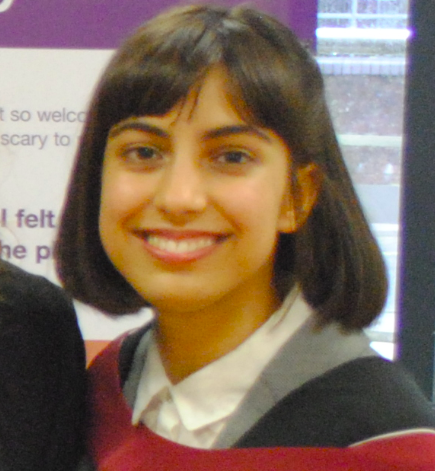
Acceptance Message
Thank you, firstly, to the Royal Meteorological Society. I’m so grateful to receive this ‘emerging communicator’ award!
It’s been an exciting couple of years working with the Society on various different projects focused on encouraging greater diversity into the weather and climate field and trying to make it a more welcoming place, particularly for early careers. Thank you, specifically, to those in the EDI working group, the youth and early career SIG, and to Hannah Mallinson for giving me and my ideas a chance!
Since moving into this field about 3 years ago, I’ve also been incredibly fortunate to have had many opportunities to discuss climate change with the public. I specifically want to thank those who feel similarly passionately about science communication and have supported me in that; a huge thank you to Alice and Natalie, along with their other wonderful volunteers, at Exeter Science Centre, the Exeter Pint of Science organisers, especially Chryssa, my supportive colleagues at University of Exeter, especially Will Seviour, Richard Betts, and wider group of PhDs and postdocs, and of course my family!
The conversations I’ve had with thousands of everyday people on the street, at music festivals, in cinemas, at summer fairs, or in the pub really energise me beyond the research I do day-to-day. This award is a big boost to me continuing to do those kinds of things which, frankly, strengthen my belief that weather and climate science should be for and for the benefit of everyone.
Martin Young and Nick Grahame were both chief forecasters in the UK Met Office and have drawn upon their considerable experience to compile a series of nine papers published in Weather between October 2022 and September 2024. Although their stated aim was to describe a history of the operation of the central guidance forecaster, they have also provided a clear overview of the scientific, technological and communication advances which have supported the development of the role over the last century or so from the pre-computer era to the present day. Nowadays the role requires the ability to assimilate an ever-increasing volume of observational data and model output to make decisions rapidly.
The preparation of even a single paper requires clear thinking and organization, so the effort needed for nine papers, maintaining a consistent narrative throughout, must have been considerable. They have provided valuable lists of published references and also have made use of personal recollections from recent practitioners where these can add useful insights.
The role of the central guidance forecaster is probably not understood by the general public, and possibly not even by those in the meteorological community not directly involved in forecasting. Since this topic has not previously been covered in detail in the published literature, this series of papers provides a unique record, perhaps being of particular value to early-career forecasters.
Martin and Nick are to be congratulated on their achievement and fully deserve the Gordon Manley Weather Award 2024.
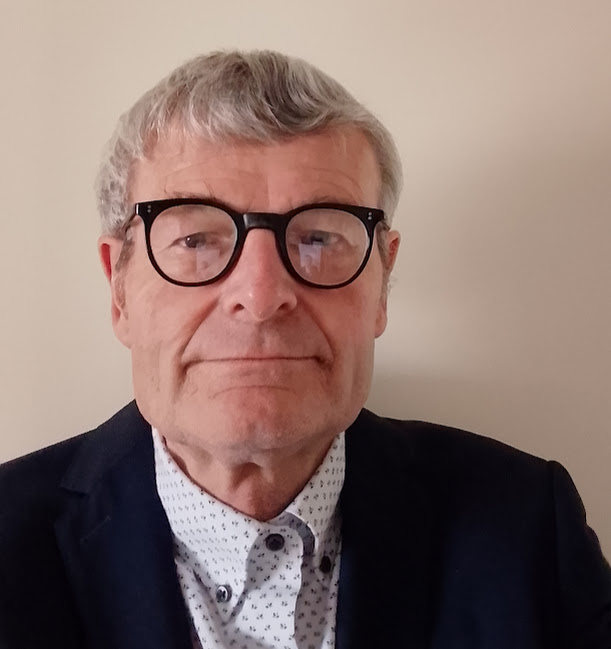
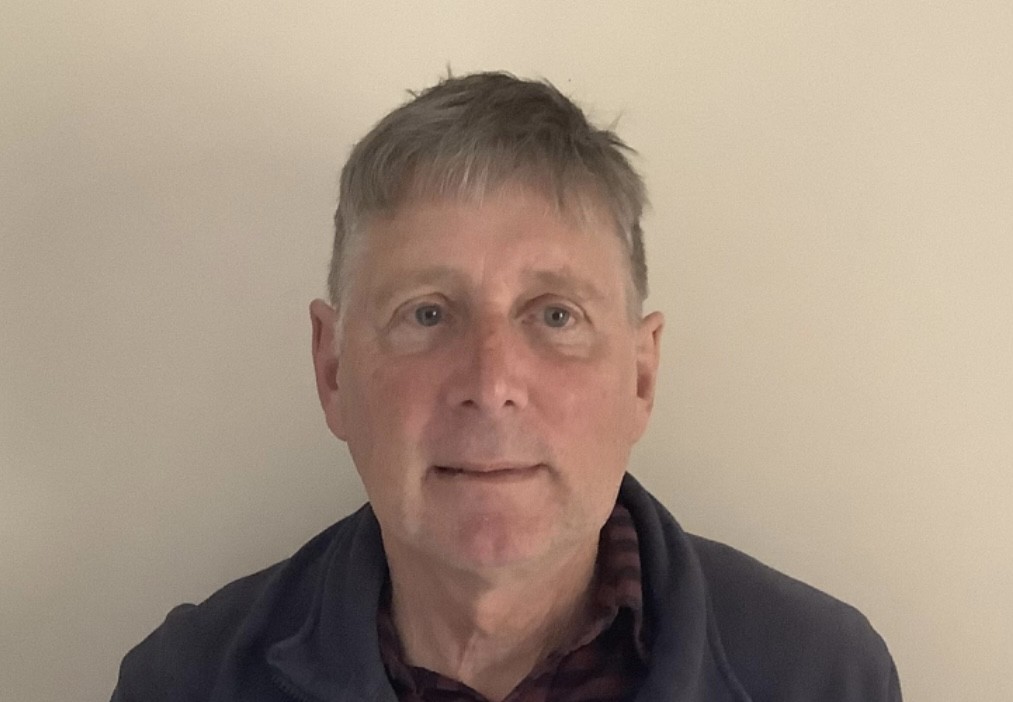
Martin Young (top) and Nick Grahame.
Acceptance Message
We are absolutely thrilled to receive this prestigious award. It is an immense honour to be recognized for our achievements in publishing this series entitled “The history of UK weather forecasting: the changing role of the central guidance forecaster”. We would like to express our sincere gratitude for considering us for this award.
The stimulus for writing this series arose from an awareness of how unprecedented advances in the science of meteorology that took place during our own careers, led to an evolutionary change in the role of those involved in operational weather forecasting. We were also keen throughout this series to recognise the importance of the human skills which remain highly valued to this day.
We gratefully acknowledge the unwavering assistance of the Editor of Weather and the constructive comments and support from reviewers throughout the publication process. We also owe a debt of gratitude to the authors in Weather and other journals, whose papers over many decades, provided us with a unique insight into how forecasting was carried out in the past. Without their contributions, the scope of this work would have been much reduced. Finally, we would like to thank our ex-colleagues who we called upon for additional information and insight.
We hope that our series will act as a stimulus for future meteorologists who might eventually extend it, as operational meteorology continues to evolve, perhaps in unforeseen directions in years to come.
Eddy Graham brought unstinting enthusiasm, dedication and passion, even in the most challenging times during his five-year tenure as Co-Editor-in-Chief of Weather. Having previously served on the Editorial Board, Eddy stepped into the role in April 2019 as the first Co-Editor-in-Chief in the journal’s history, alongside Gavin Huggett. In the first year, Eddy co-led a major overhaul of the journal’s workflow which helped lay solid foundations for successes in the coming years, while implementing changes based on feedback from readers. Eddy led Weather through the Covid-19 pandemic, during which it was unclear if Weather’s uninterrupted monthly publication record would continue, in addition to the challenges faced by all journals during that time. Eddy also oversaw the creation of, and contributed to, new article types, including Spotlight articles on recent weather events, in addition to a transition to an Associate Editor-based review structure. Eddy brought the highest standard of meteorological accuracy to every issue of the journal through painstaking checking of the issue proofs.
Eddy led a multitude of Special Issues of Weather, including the March 2022 Special Issue on the eruption of Hunga Tonga‐Hunga Ha'apai – a remarkable achievement given the issue was published only 54 days after the eruption. Eddy handled nearly 700 submissions during his tenure, but his service to the journal extended beyond his editorial duties, authoring 11 articles with 7 as first author simultaneously with his day-to-day management of the journal.
During Eddy’s tenure as Co-Editor-in-Chief, Weather’s Impact Factor rose from 0.94 to 2.3. This transformed the position of the journal both within the RMetS portfolio and on an international level. It is a testament to the high standards of editorship Eddy brought to Weather. The increased ranking of the journal not only reflects Eddy’s dedication but also serves to attract higher quality papers from around the world – furthering the public understanding of meteorology and related sciences.
Eddy’s commitment to maintaining the identity of Weather, while simultaneously advancing and modernising the journal, makes him a worthy recipient of the Gordon Manley Award.
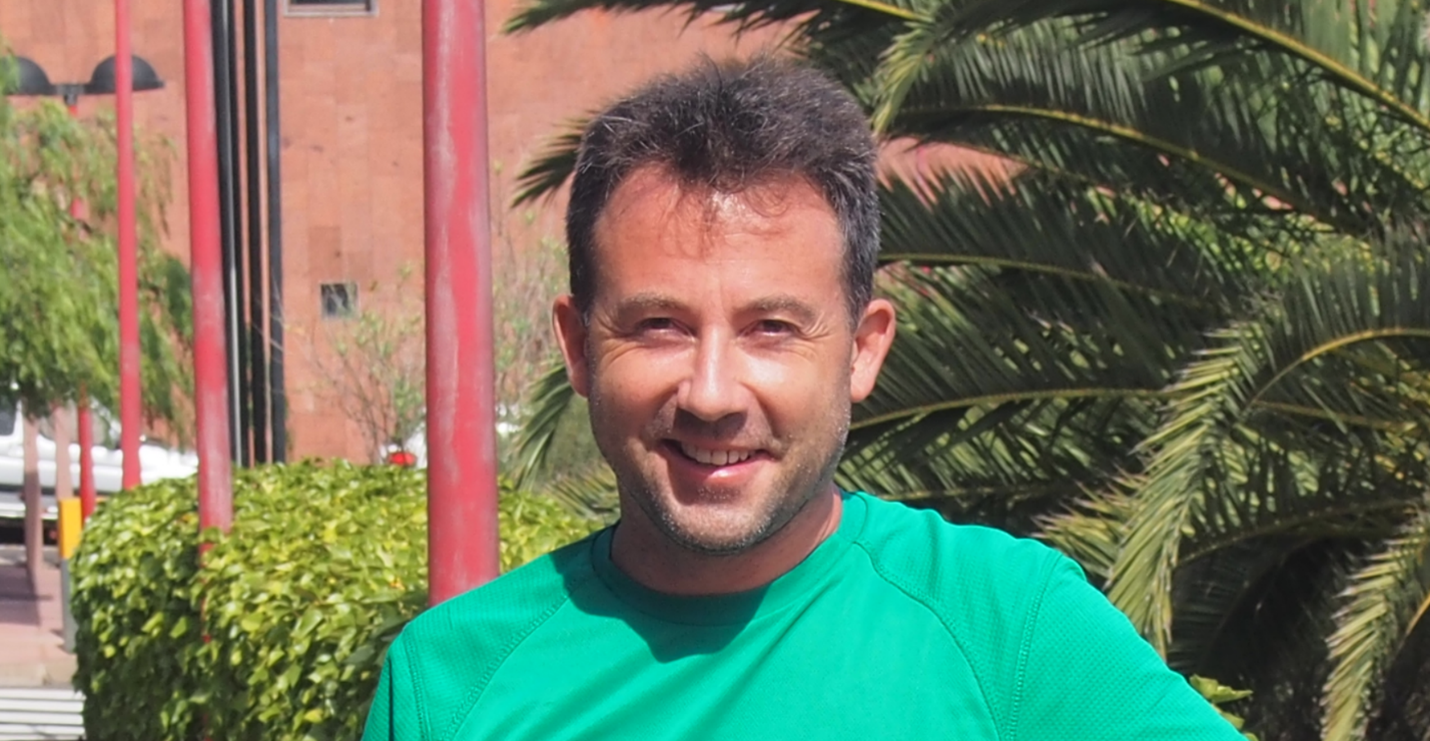
Acceptance Message
I am honoured and delighted to accept the RMetS Gordon Manley Weather Award for 2024. Since my formative years, Weather has always played an important focus in my life. I never met Gordon Manley, but like him, I have always been fascinated by observing the weather and climate.
Of course, in accepting this award I must recognise first and foremost the huge team effort that goes into producing Weather every month - so I would like to express my sincere thanks and gratitude to all the current and previous Editors and Editorial Board members of Weather alongside whom I have worked over the years, together with all authors and contributors, and the publishers too. It has been a great pleasure to work with such a talented and extended team, and our achievements would not have been possible without everyone's goodwill, positivity, dedication, diligence, hard work, professionalism and unwavering loyalty, each and every month, during the production of Weather. In addition, it goes without saying that I would also like to acknowledge and thank all the staff at the Royal Meteorological Society for their unstinting support, advice and direction over the years. Finally, I would like to thank my own family for their time, help and patience during my many Weather commitments.

